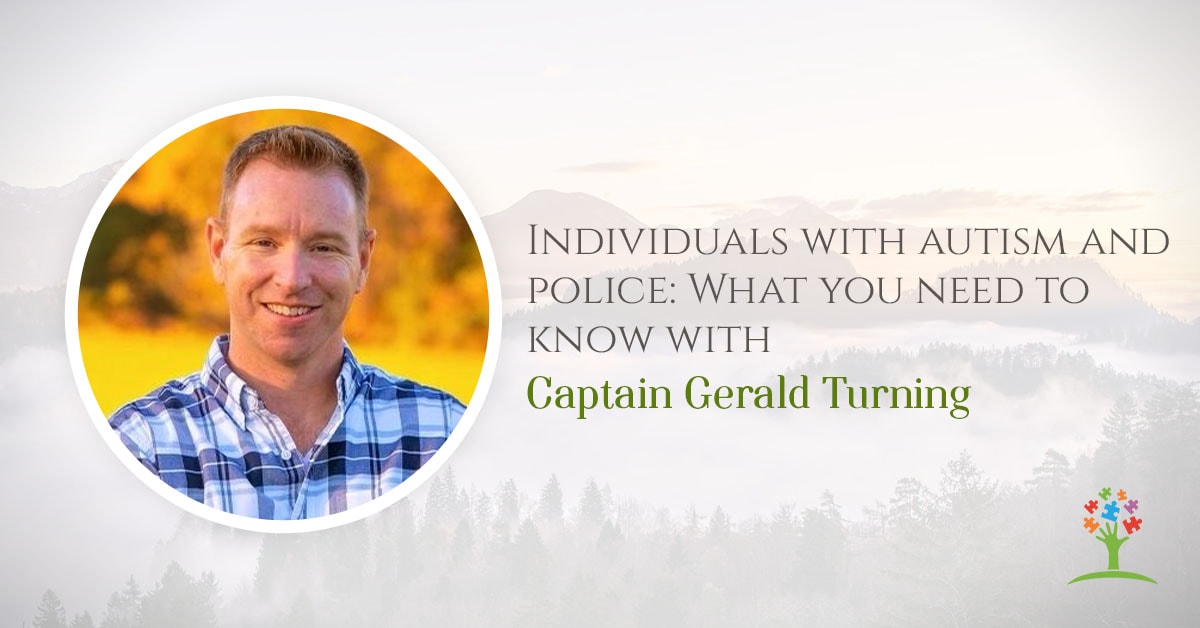Individuals with Autism and Police: What You Need To Know with Captain Gerald Turning
Want to Learn how to Increase Talking & Decrease Tantrums in Children with Autism or Toddlers Showing Signs?
Want to start making a difference for your child or clients?

Connecting Parents and First Responders
How To Alert Law Enforcement
Getting To Know Your Local Law Enforcement
Parents are pros at advocating for their children when it comes to doctors, therapy, and school. This should not stop when it comes to the first responders in your community. Jerry gives great tips for introducing and teaching your local police all about your child. He offers a 5-day course on his website that dives into this really important tool for utilizing your community helpers and keeping your child safe.
Jerry is such a relatable autism dad with very valuable information to share. You can learn more about him and his company on his website, blog, and social media. Also be sure to check out his book Desperate Pursuits, a fiction novel about a police officer grappling with his son’s autism diagnosis and other hot button law enforcement topics.

Gerald “Jerry” Turning On The Turn Autism Around Podcast
Captain Turning is a 25 year-veteran police officer who served most of his career as a K9 Handler, Trainer, and Supervisor. He has served as Internal Affairs Commander, Patrol Division Commander, and Training Officer for his police department.
Captain Turning is also a proud Autism Dad, blogger at “Bacon and Juiceboxes”, and author of “Desperate Pursuits”, a novel based on the challenges facing a father coming to grips with his son’s diagnosis.
You’ll Learn
- Why are parents afraid to contact first responders?
- Why can first responders learn from autism parents?
- The importance of trusting law enforcement with your emergencies.
- How to contact or alert law enforcement during an emergency that involves autism.
- How to introduce your child to law enforcement.
- Safety concerns for children with autism.
- The steps for de-escalating dangerous situations with law enforcement.
Resources
- Sign up for a free workshop online for parents & professionals
- How to Get a Parent Out of Autism Denial
- Autism Success Story with Michele C.
- Autism Dad Advice | Interview with Dr. Charles Barbera
- Autism Medication with Dr. Michael Murray, Psychiatrist
- Autism and IQ Scores | Supporting Children with Intellectual Disabilities
- Autism and Safety: Keeping Kids with Autism Safe
- Desperate Pursuits by Gerald M. Turning Jr on Amazon
- Blue Bridge Training
- Blue Bridge Autism Training | Facebook
- Bacon and Juiceboxes
- Raising Safety Awareness for Children with Autism – Emotional Interview with Mom Who Lost Her Child
Want to Learn how to Increase Talking & Decrease Tantrums in Children with Autism or Toddlers Showing Signs?
Want to start making a difference for your child or clients?
